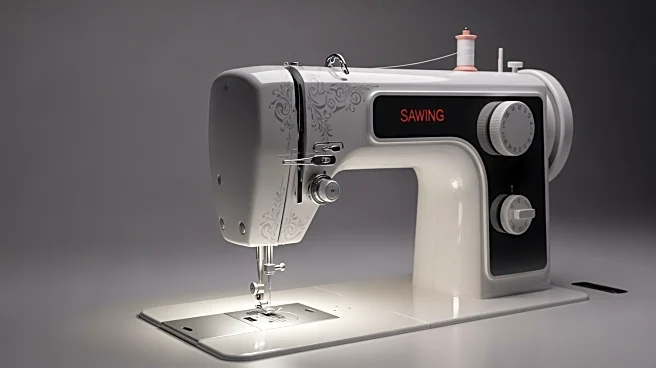What's Happening?
Robert Wun, a Hong Kong-born fashion designer, has shifted his business model from wholesale to bespoke creations. After facing challenges with the wholesale model, Wun decided to focus on customized designs during the pandemic, prioritizing creativity
and client-first business practices. His journey began with recognition from Joyce Boutique after showcasing his graduate collection online. Wun's designs have attracted high-profile clients, including Lady Gaga and the Hunger Games costume team. The pandemic allowed Wun to reset his approach, emphasizing meaningful and responsible fashion creation. He has since found success in Paris, winning the Special Prize from Andam and receiving mentorship from Bruno Pavlovsky of Chanel. Wun's bespoke model caters to a loyal clientele, particularly in the U.S., with orders ranging from £45,000 to £60,000.
Why It's Important?
Wun's transition to bespoke fashion highlights a significant shift in the industry, emphasizing creativity and personalized client experiences over mass production. This model allows designers to maintain artistic integrity while achieving commercial success. The move reflects broader trends in the fashion industry, where consumers increasingly seek unique and meaningful products. Wun's success in Paris and the U.S. market demonstrates the viability of bespoke fashion, potentially influencing other designers to adopt similar models. This shift could lead to a more sustainable and responsible fashion industry, reducing waste and promoting ethical practices.
What's Next?
Wun's bespoke model is expected to continue growing, with increasing demand from U.S. clients, particularly millennials and Asian Americans. His success may inspire other designers to explore bespoke fashion, potentially leading to collaborations and innovations in the industry. As Wun's business expands, he may face challenges in scaling operations while maintaining quality and creativity. The fashion industry will likely monitor Wun's progress, considering the implications for traditional wholesale models and the potential for broader adoption of bespoke practices.
Beyond the Headlines
Wun's approach raises ethical considerations about the fashion industry's impact on the environment and society. By prioritizing bespoke creations, Wun contributes to reducing waste and promoting sustainable practices. His model challenges the fast-fashion paradigm, encouraging consumers to value quality and craftsmanship over quantity. This shift could lead to long-term changes in consumer behavior, fostering a more responsible and conscious fashion industry.















